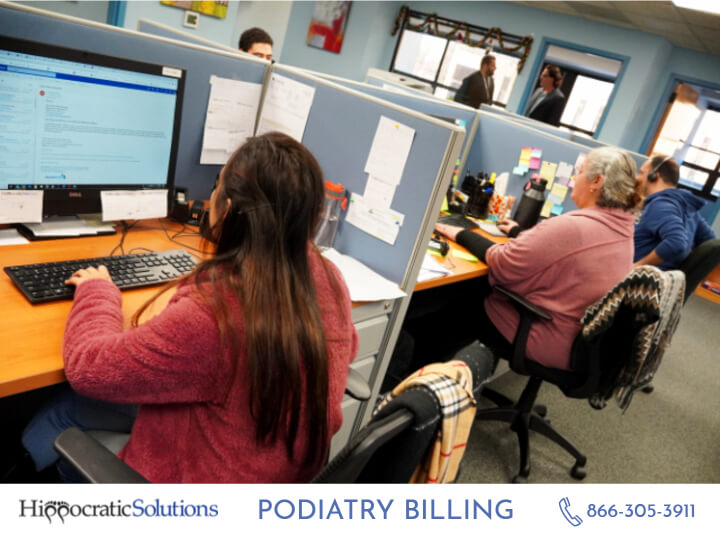Routine foot care is perhaps the most common reason patients visit podiatry clinics. And one treatment that is sometimes done during routine foot care is debridement of nails. Depending on the number of nails involved, this is labeled with the CPT code 11721.
So how do you successfully bill 11721 to Medicare? The most important thing to remember when billing 11721 to Medicare is that Medicare will only cover it if it is medically necessary.
If the patient has a systemic condition resulting in leg or feet desensitization or if they have severe circulatory embarrassment, then they will quickly cover and approve 11721. Without this medical necessity, billing 11721 to Medicare can be more of a headache.
What is 11721?
11721 or Current Procedural Terminology (CPT) code 11721 is a medical procedural code that can be found under Surgical Procedures on the Nails, as defined by the American Medical Association.
Specifically, CPT 11721 refers to the debridement of nails, which is the removal of a toenail bed due to the diseased toenail bed. This can be performed with an electric grinder or with a manual instrument. Patients who are diagnosed with conditions such as onychomycosis are generally recommended for nail debridement.
The 11721 code is used to classify procedures involving debridement of 6 toe nails or more, while the 11720 code is used to classify procedures involving the debridement of 5 toe nails or less.
Known Issues with Billing 11721
Recently, podiatrists have been met with denials from Medicare when billing for the code 11721. Since the implementation of ICD-10 it has become more difficult to have Medicare cover the costs of 11721 procedures. The reason is that 11721 is generally considered medically necessary.
According to Medicare, routine foot care can be payable when the treated patient is suffering from a systemic condition. The systemic condition should lead to desensitization in the feet or legs or result in severe circulatory embarrassment. These class findings must be supported and reported in the medical record of the patient.
It is important that the 11721 procedure is performed on a patient with an existing system condition to have it covered by Medicare. Without this, it can be difficult to bill 11721 successfully.
When coding 11721, it should also be noted that 11721 requires a modifier – these can be Q7, Q8, or Q9. The purpose of these modifiers is to indicate that the patient is properly classified for routine foot care. When coding 11721, it typically does not require a laterality modifier, as debridement is not coded by location but by depth and size.
Another known issue with billing 11721 is the use of modifier 59 to bypass certain recent changes in the NCCI guidelines. This is determined by the location of the hyperkeratotic lesion, whether it can be found on the same distal phalanx or not. When this is the situation, modifier 59 should not be used to bypass recent edits.
How to Bill 11721 to Medicare
To successfully bill 11721 to Medicare, the most important part is ensuring that the patient required the procedure as a medical necessity. Patients must have a systemic condition that demands the procedure to be done.
Without the systemic condition resulting in feet or leg desensitization or severe circulatory embarrassment, Medicare only considers the procedure as routine foot care and not eligible for coverage.
Hippocratic Solutions – The Top Specialty Podiatry Billing Provider
Medical billing can be tough, especially specialized billing like podiatry billing. Giving your patients the best care possible means more than just properly treating their conditions, but also properly processing their claims and helping them with their coverage.
At Hippocratic Solutions, we are here to help podiatry clinics get the most out of their medical billing needs and more. Our expert team can help you unravel any headache and problem you might have with your billing, and keep your clinic running smoothly and seamlessly.
Spend more time doing what you trained to do – treating patients – and let us handle the rest. Contact us today at Hippocratic Solutions to learn more.
